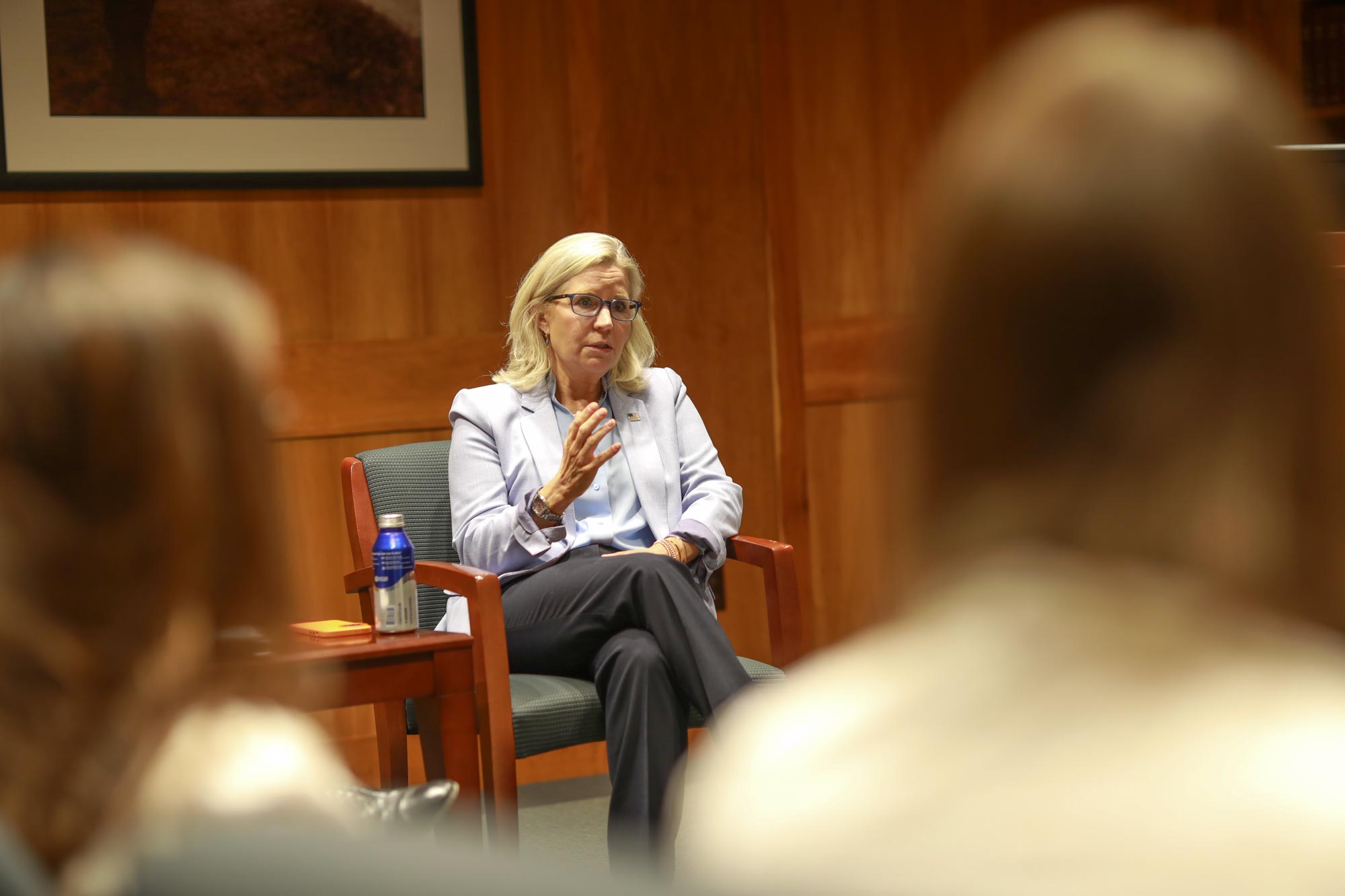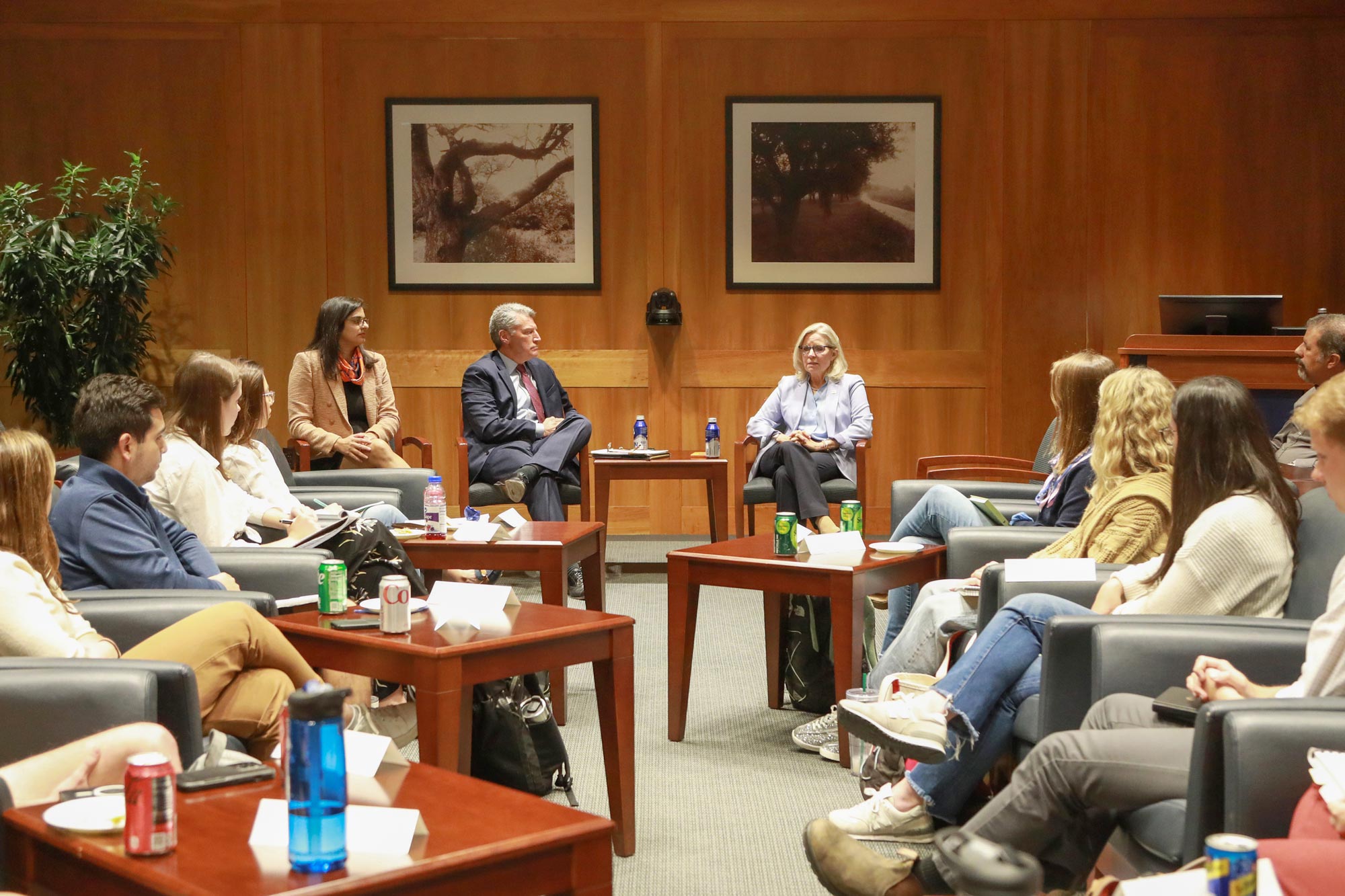Jacob Baltzegar decided to go to law school as he drove home from a dentist appointment. He remembers this detail because that was the day insurrectionists stormed the U.S. Capitol to protest the certification of the 2020 presidential election.
Now one semester away from graduating from the University of Virginia School of Law, Baltzegar was one of 16 students who participated in Congress, Oversight and the Separation of Powers, a special short course taught by the very people who risked their careers to investigate the attack.
“Jan. 6 – and the aftermath, the impeachment and the investigation – felt like a climax to the activism and unrest we’d been going through with COVID and George Floyd, all kind of testing what Americans can take as a society,” Baltzegar said. “In my own narrative, it felt like, ‘OK, I’m definitely going to law school to learn about how this all works and to maybe play my part in trying to hang on to it.’”
The class was organized and co-taught by UVA Law professor Payvand Ahdout, who studies separation of powers issues, and Timothy Heaphy, a 1991 School of Law graduate, former U.S. attorney and former UVA counsel. He stepped away from his UVA job in 2021 to lead the House of Representatives’ investigation into the attack on the Capitol.
The Karsh Center for Law and Democracy sponsored the course.
The first night of the course featured former Wyoming U.S. Rep. Liz Cheney, one of two Republicans who sat on the congressional committee investigating the attack. Cheney, who subsequently lost her House seat in a Republican primary in April 2022, served as vice chair of the committee. Cheney, the daughter of former Vice President Dick Cheney, came to UVA in March as a professor of practice with the UVA Center for Politics.
“She was very candid in the way she spoke to us, but there was also such gravitas,” Baltzegar said. “She gave up her family’s political dynasty to do the right thing, and that really set the tone for the rest of the course.”
When Heaphy stepped away from his position as UVA general counsel to lead the investigation, he found no shortage of “all-stars” willing to join his team of investigators.
“I had an embarrassment of riches, good lawyers who were willing to leave law firm partnerships, assistant U.S. attorney positions and other congressional committee jobs, because everybody felt the same,” Heaphy said. “They felt like this is a moment in history that needs a careful response, and being a part of the team would be an honor.”
Many of those investigators showed up to address the class, along with at least one more member of the congressional committee, prominent staffers and a Washington Post investigative reporter. U.S. Rep. Pete Aguilar, a Democrat representing California’s 33rd District, also spoke to the class.
With just six days – 12 hours of discussion – to impart lessons learned from the investigation, Heaphy said he hopes students came away with an appreciation for the risk that comes with living lives of consequence.
“There’s risk to raise your hand, but it’s worth it because without doing things that matter, you’re having less of an impact,” Heaphy said. “I want them to take away that there are times in your life and your career when you should take risks to do the right thing.”
Heaphy is now a partner at Willkie, Farr & Gallagher, and has taught two Law School courses connected to the events of Jan. 6.
The small size of the class – and an implicit confidentiality agreement – allowed the students and speakers to ask and speak candidly about their findings and the incident’s connections to current events still unfolding in the news, Ahdout and others said.

“If Liz Cheney came here for an open event with 100 students, they would get ‘restrained Liz Cheney,’” Ahdout said. “If Tim isn’t in the room asking the right questions of these people – if he didn’t make them comfortable to come in, and if they didn’t know that our students have already spoken to all these other participants and that they have a deep knowledge base – then that’s something students could just watch on TV.”
Instead, Ahdout said, she hopes the students will take the lessons into their lives as lawyers, public servants and citizens, applying them to identify and combat disinformation and toxic partisanship.
“They’re each going to take a different tack, but we have people in the class who came from the Hill and I imagine some of them will have Congress as a piece of their future careers,” Ahdout said. “If these people are ultimately in Congress and are not demonizing the other side, because they can see that you can be far more effective by having bipartisan goals – what a huge difference that would make.”
Baltzegar doesn’t anticipate working on the Hill, but he plans to practice environmental law in Washington, D.C. Because of the course, he understands that the two are intertwined.
“When you’re going to practice law, the very bedrock of that is having a functioning democracy and a functioning government,” Baltzegar said. “That is literally what was at stake. I don’t know if the systems will always hold, but I sure know I’m going to try to do my part.”
Media Contact
Article Information
September 24, 2025






